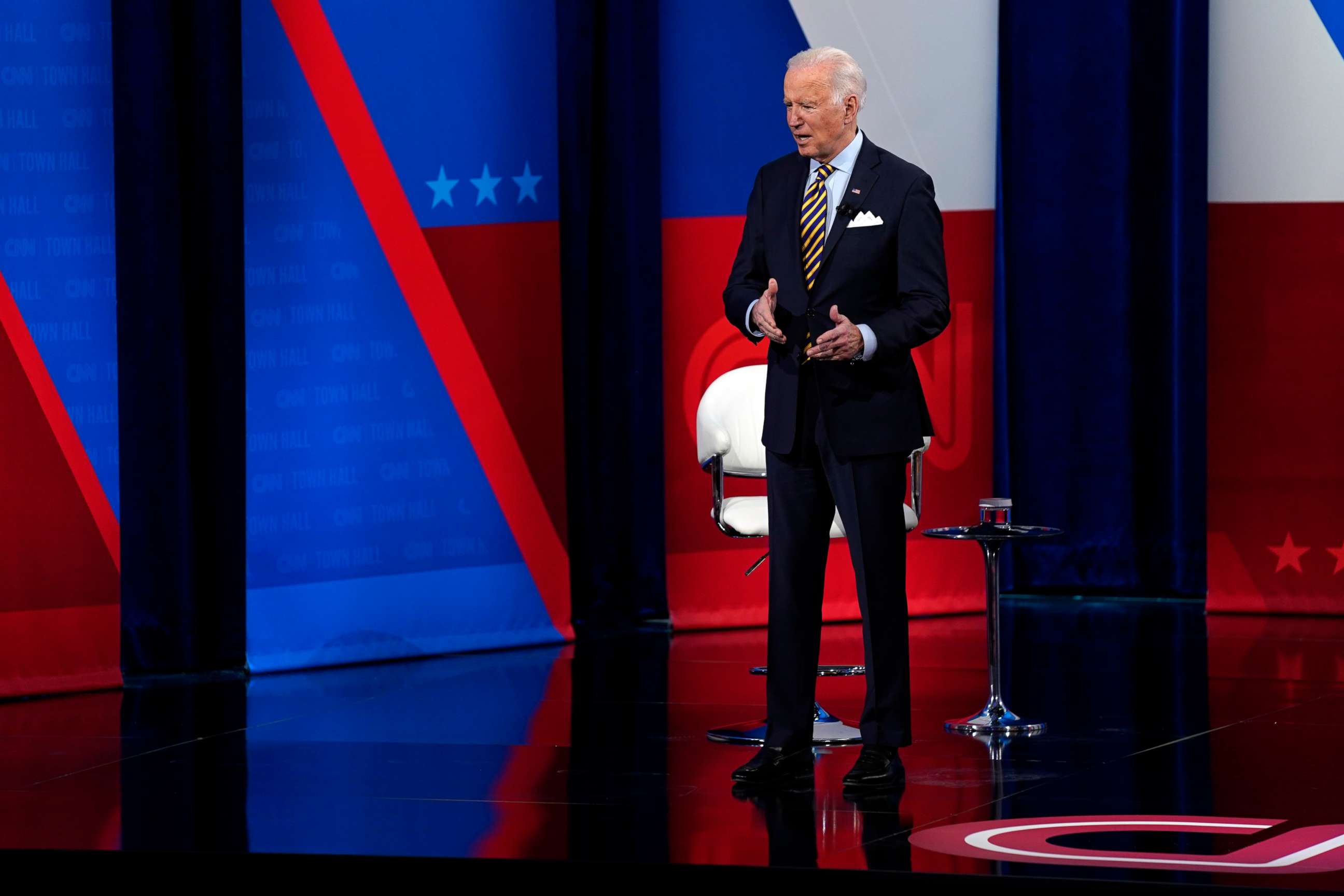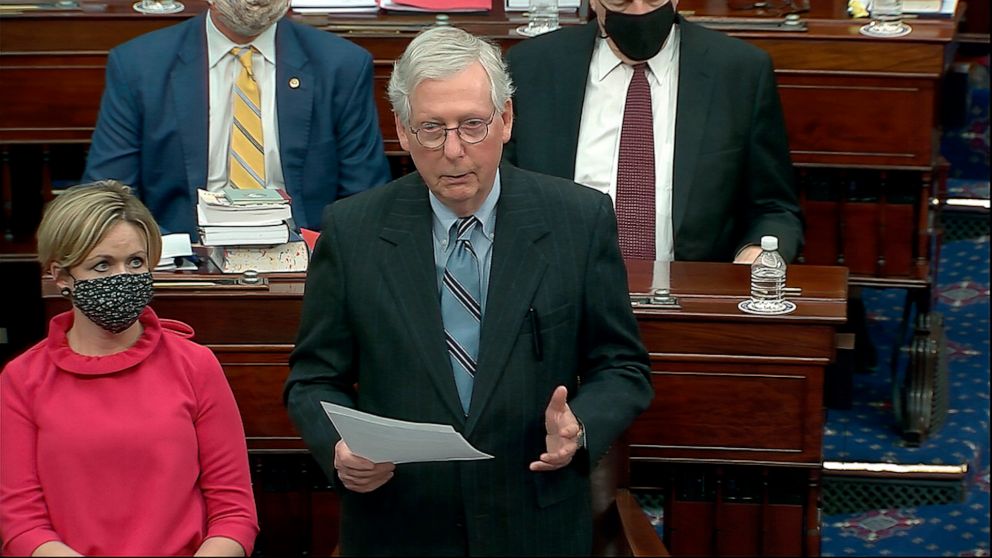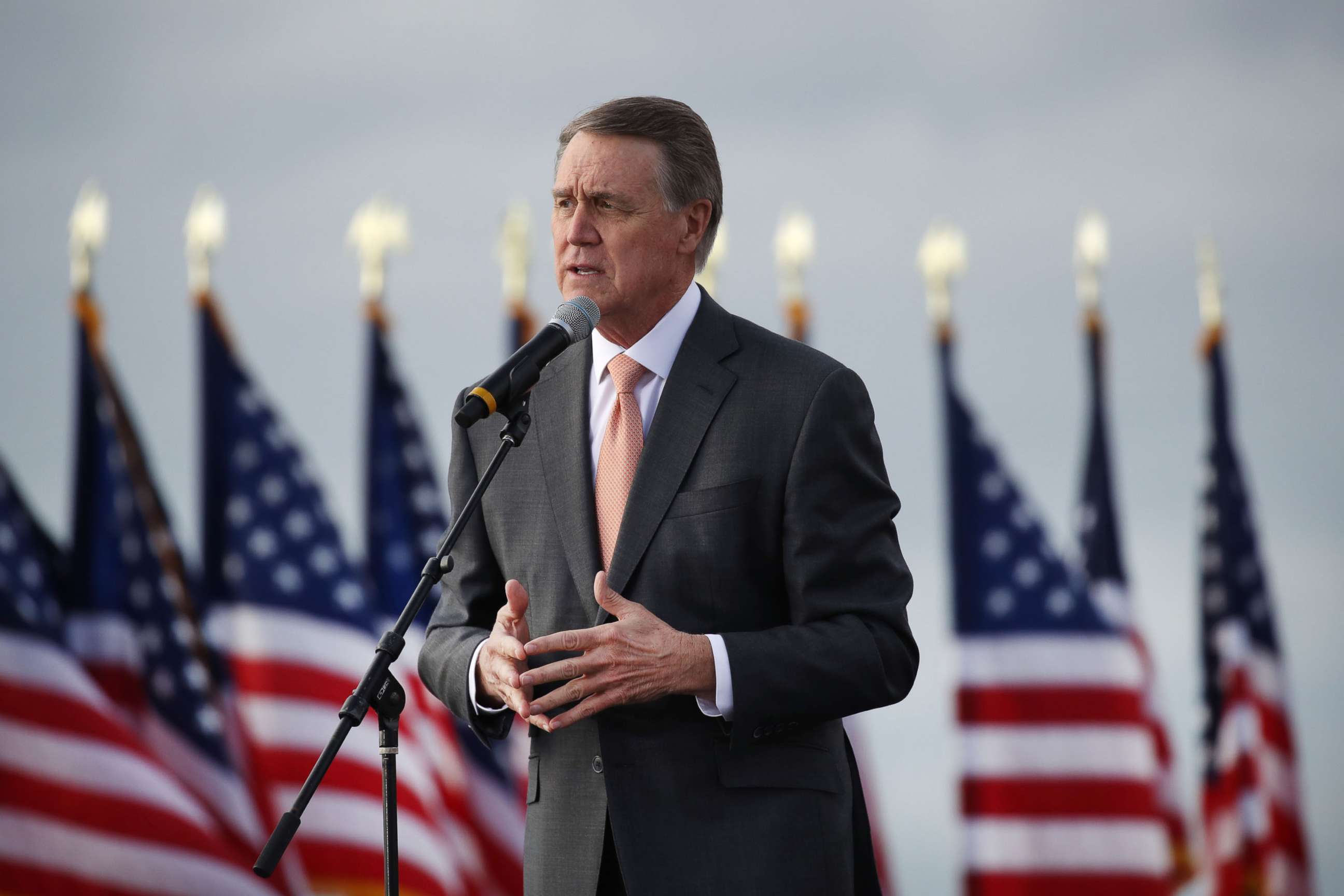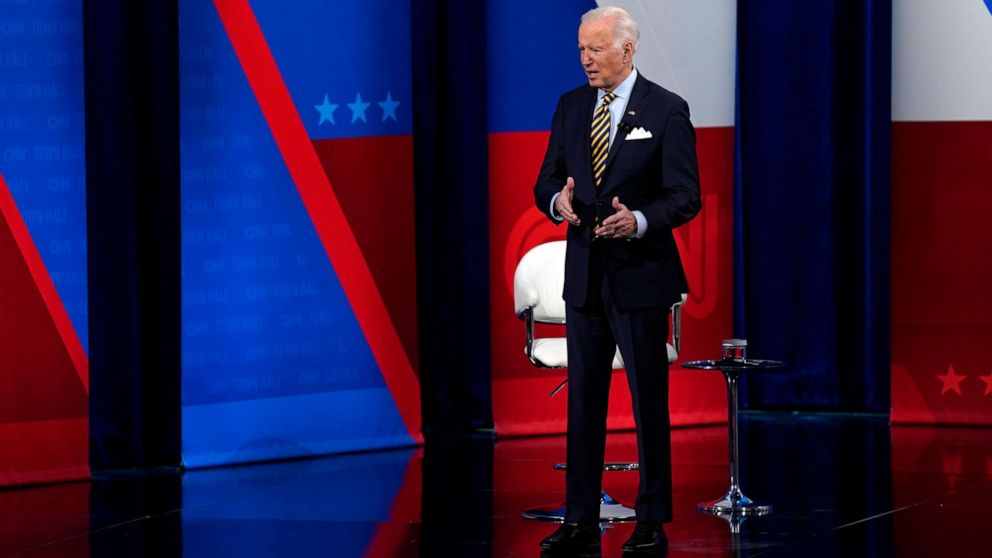Biden caught in schools squeeze amid COVID-19 relief push: The Note
The TAKE with Rick Klein
It's a plan the White House is lauding as "bold and ambitious."
It's also grown less so through the early weeks of the Biden presidency -- and could reveal political vulnerabilities for the new administration as it pushes for a major COVID-19 relief bill.
President Joe Biden's CNN town hall Tuesday night featured multiple questions about school reopening that revealed fresh layers of complications. Biden pointed out the need to upgrade ventilation systems, protect everyone from bus drivers to cafeteria workers, and even potentially hire more teachers, secure additional classrooms and extend the school year into summer.
The president also further clarified his pledge to have the majority of U.S. schools open within his first 100 days in office, saying it was a "mistake in the communication" of that promise to suggest it would extend beyond K-8 classrooms.

Biden didn't mention teachers' unions, which have provoked pockets of outrage nationwide for the preconditions some have imposed on reopening. The Biden White House's labor ties have coalesced into a Republican talking point as the president shops for GOP support for his $1.9 trillion stimulus package.
The reopening of schools is a non-partisan priority for parents and government officials literally everywhere in the country. It's not an issue that responds naturally or quickly to national guidelines or mandates, as Biden's team knows well.
Biden on Tuesday laid out a timeline of COVID recovery that would extend well into the next school year. That also puts it well into the next election year before life can be expected to return to normal.
The RUNDOWN with Alisa Wiersema
If there was any doubt before, it's safe to say by now there's no love lost between former President Donald Trump and Senate Minority Leader Mitch McConnell. Three days after McConnell first voted to acquit Trump and then publicly rebuked him, Trump railed against the minority leader in a lengthy statement full of personal attacks and political criticisms.
In addition to calling McConnell "a dour, sullen and unsmiling political hack," Trump indicated he's willing to wade into future election contests.
"Where necessary and appropriate, I will back primary rivals who espouse Making America Great Again and our policy of America First," the former president said.

The threat could be just that -- for now -- it is unclear how involved Trump actually plans to be in the 2022 midterm elections and beyond. In the meantime, the self-imposed caveat of "where necessary and appropriate" gives him room to back away from politics if Republicans distance themselves from prioritizing his base.
Still, Trump's influence over his party and supporters continues to linger over Capitol Hill as the Senate prepares to hold its first hearing next week to examine security preparations ahead of Jan. 6. House Speaker Nancy Pelosi also endorsed the creation of a 9/11-style, independent commission that would investigate the attack on the Capitol. Legislation to set up the commission could be introduced as early as this week, but it remains unclear when it would be voted on.
The official launch of such a commission requires approval from the Senate and a sign off from Biden. On Tuesday, the White House indicated Biden supports the creation of the commission but put the ball back into Congress' court on following through -- all but ensuring that Trump's ties to the events of that day will continue to be dissected for weeks to come.
The TIP with Quinn Scanlan
With a gubernatorial and Senate race on the ballot in 2022, Georgia was already set to be the battleground state to watch in the next election cycle. But it's increasingly looking like those races will be dominated by the ghosts of campaigns past.
Stacey Abrams is expected to seek a rematch against Republican Gov. Brian Kemp, and, after filing a statement of candidacy with the Federal Election Commission, on Tuesday, Republican David Perdue went public with a lengthy statement outlining why he's considering a comeback bid for U.S. Senate.

Despite the Peach State delivering electoral victories to Biden and two Democratic Senate candidates last cycle, Perdue claimed that "Georgia is not a blue state," asserting the November election, when he just barely missed the 50% threshold necessary to avoid a runoff, is more reflective of the electorate than the dual GOP Senate losses in January.
With the Republican Party in the midst of an identity crisis and Georgia Democrats determined to prove their recent statewide wins were not a fluke, Perdue's pursuit to rejoin the Senate is unlikely to be an easy one.
For starters, he would face a new challenger: Raphael Warnock. In the runoff, the reverend turned senator received about 20,000 more votes than now-Sen. Jon Ossoff did in his race against Perdue, suggesting he may be a more formidable opponent. And if Abrams runs for governor, she and Warnock, whom she personally recruited to run for Senate, are sure to be a dynamic duo on the campaign trail.
THE PLAYLIST
ABC News' "Start Here" podcast. Wednesday morning's episode features ABC News Senior Investigative report Aaron Katersky, who tells us about the lawsuit filed against former President Donald Trump and his personal attorney Rudy Giuliani following the Capitol riot. FiveThirtyEight Senior Science Writer Maggie Koerth explains why Texas' power grid failed under the weight of winter storms this week. And ABC News Foreign Correspondent James Longman takes us inside the rebuilding of Notre Dame cathedral. http://apple.co/2HPocUL
ABC News' "Powerhouse Politics" podcast. House impeachment manager Rep. Jamie Raskin, D-Md., talks with ABC News Chief Washington Correspondent Jonathan Karl and Political Director Rick Klein about former President Donald Trump's second impeachment trial and what's next for Congress. https://bit.ly/3dqyKZ3
FiveThirtyEight's Politics Podcast. Nevada Democrats introduced a bill on Monday that would change their state's presidential nominating contest from a caucus to a primary and also dislodge New Hampshire from its position as the first primary in the nation. Also, over the weekend, outgoing Democratic National Committee Chair Tom Perez said, "a diverse state or states need to be first." In this installment of the FiveThirtyEight Politics podcast, the crew discusses if any potential changes could reshape the nominating process. They also consider why Republican senators' votes on convicting former President Donald Trump broke down the way they did. And lastly, they check-in on the gubernatorial recall efforts in California that are very likely to result in a recall election for Gov. Gavin Newsom. https://53eig.ht/3pt7TxN
WHAT YOU NEED TO KNOW TODAY
- White House COVID-19 Response Team and public health officials hold a press briefing at 11 a.m.
- President Joe Biden and Vice President Kamala Harris receive the president's daily brief at 11:30 a.m., have lunch at 12:30 p.m. and meet with labor leaders to discuss the president's coronavirus relief plan and get input on his infrastructure plan at 3:30 p.m.
- White House press secretary Jen Psaki and deputy national security adviser for cyber and emerging technology Anne Neuberger hold a press briefing at 12:30 p.m.
- First lady Jill Biden hosts a virtual roundtable conversation on military child education at 1 p.m.
Download the ABC News app and select "The Note" as an item of interest to receive the day's sharpest political analysis.
The Note is a daily ABC News feature that highlights the day's top stories in politics. Please check back tomorrow for the latest.




